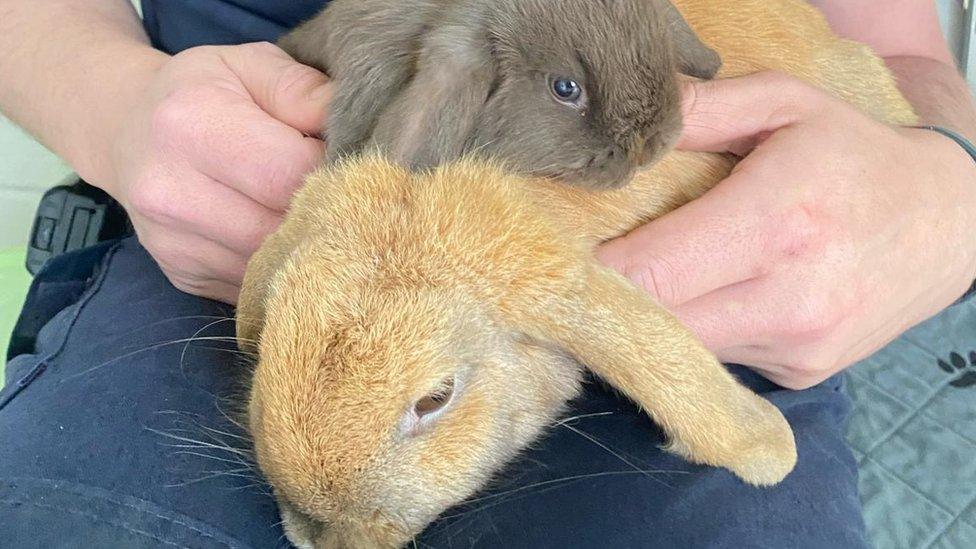Ten fox cubs rescued after den destroyed
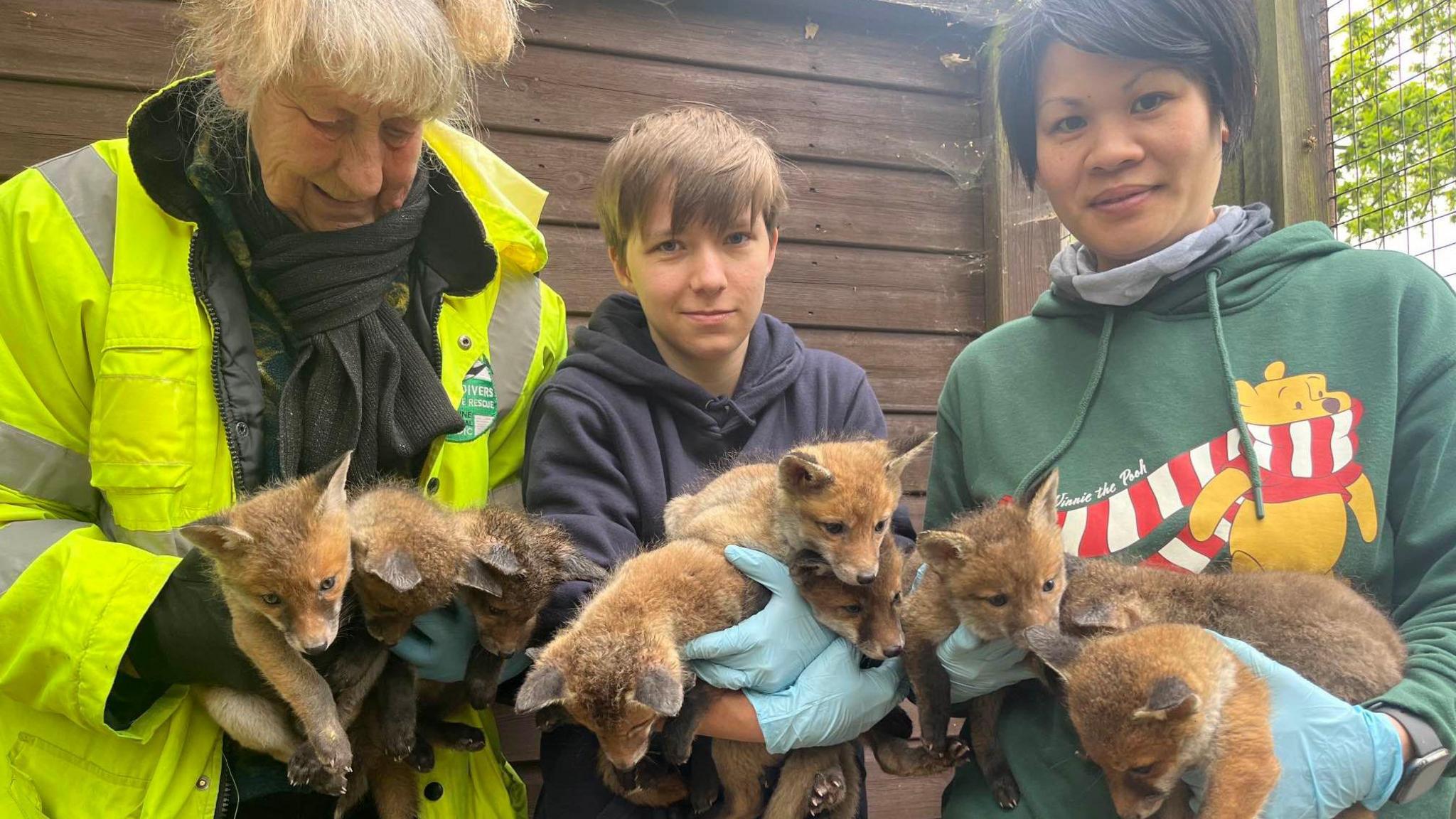
Rosie Catford from Wildlives Rescue and Rehabilitation Centre took in the 10 cubs
- Published
A group of 10 fox cubs who were saved after a farmer accidentally dug up their den are doing "absolutely brilliantly", according to a rescue centre.
The cubs were discovered by a Suffolk farmer in Saxmundham when he disturbed their litter last week.
They were taken in by the Wildlives Rescue and Rehabilitation Centre, external in Thorrington, Essex, who will aid their reintroduction into the wild over the next six to seven months.
Rosie Catford, owner of the rescue centre, described the cubs as "very naughty and very entertaining".
"I had a call from Jayne Roberts at Suffolk Animal Rescue to say she had had a call from a farmer who had accidentally dug up the earth while he was doing building work," Ms Catford said.
"I agreed to take them in, and they were brought down to us.
"When they arrived, all you saw was 10 little bottoms sticking up in the air as they were hiding their faces - they were terrified."
Listen: Rare fox cub litter rehomed
It was believed the foxes were about three weeks old when they were discovered by the farmer.
A litter of 10 was also considered very rare, something Ms Catford said she herself had not ever seen.
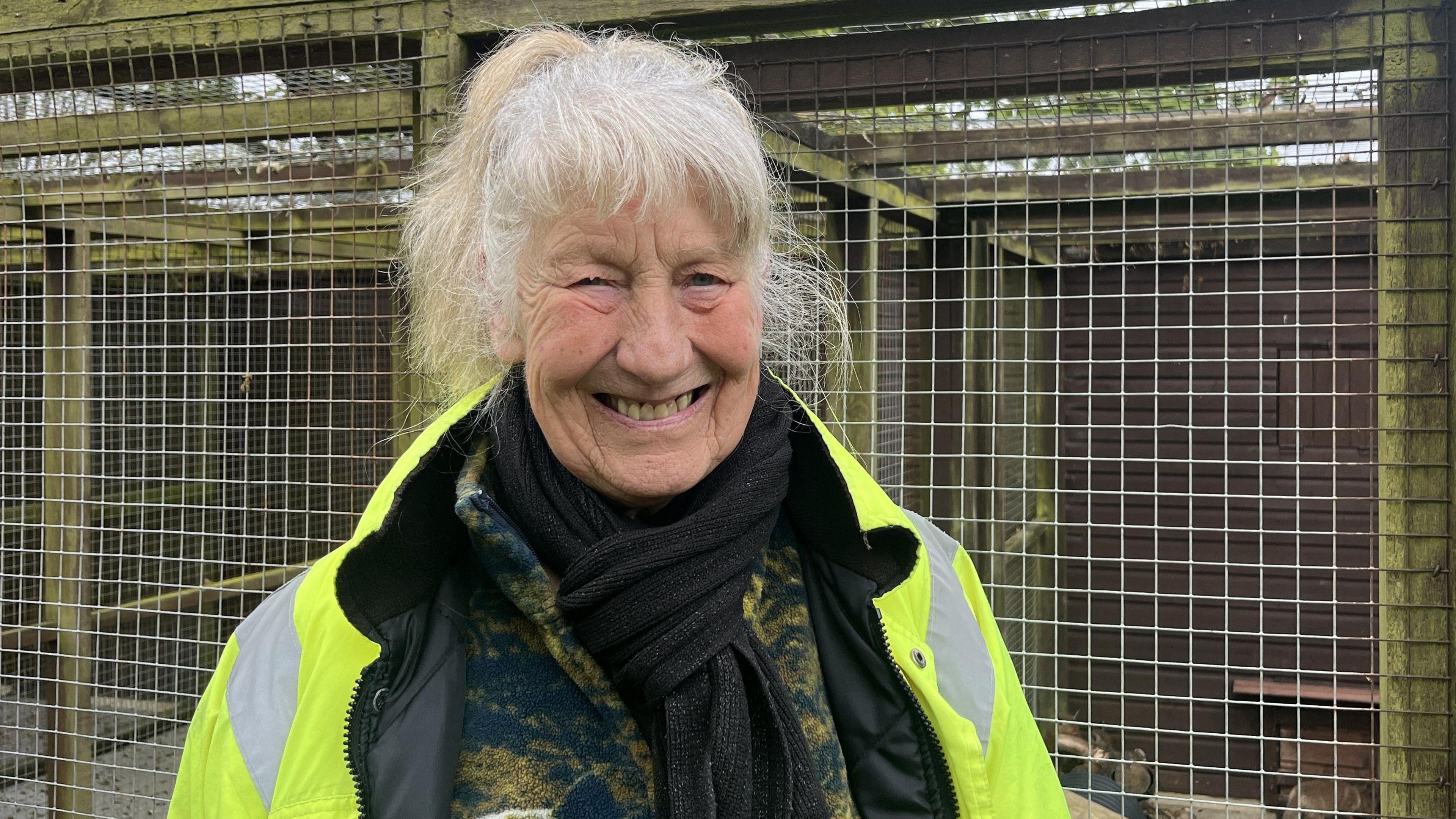
Ms Catford said the cubs were keeping the staff busy and entertained
Of the 10 cubs, two of them are a little smaller and Ms Catford believed they had struggled to compete with their siblings and get milk from their mum.
Despite this, they were all in "good condition" but it was believed the mother was unfortunately scared off when the den was disturbed.
"With the earth destroyed the mum would have run away so she probably would have thought that they would not survive," Ms Catford added.
A plan was in place to eventually release the cubs into the wild once they are older.
"They are going to get a lot bigger, and we'll have to separate them to give them more room to run around," Ms Catford explained.
"They will be with us at the centre until end of July and then they'll be health checked and placed into relief pens."
Relief pens are placed outside and allow wild foxes to get used to the rescued foxes' scent before they are released.
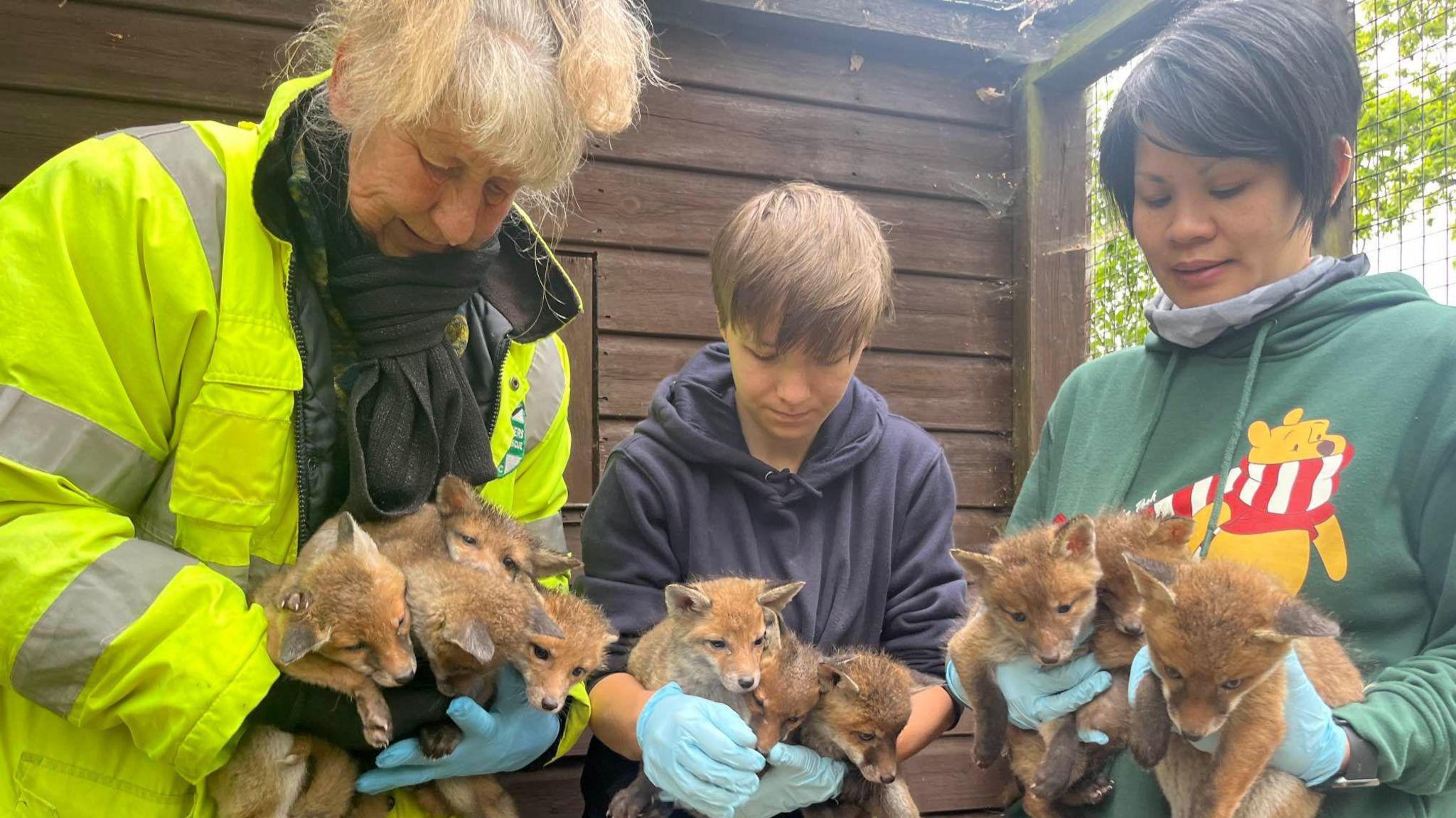
The cubs will be released into the wild when they are big and old enough
For now however, Ms Catford said she was enjoying seeing the cubs navigate life.
"We're starting to see their different characters coming out, particularly the two smaller ones who come and grab the food with huge mouthfuls before they run around to find where to stash it," she said.
"We stand back when we feed them and enjoy these little characters."
Follow East of England news on Facebook, external, Instagram, external and X, external. Got a story? Email eastofenglandnews@bbc.co.uk, external or WhatsApp us on 0800 169 1830
Related topics
Stories like this
- Published19 April 2024
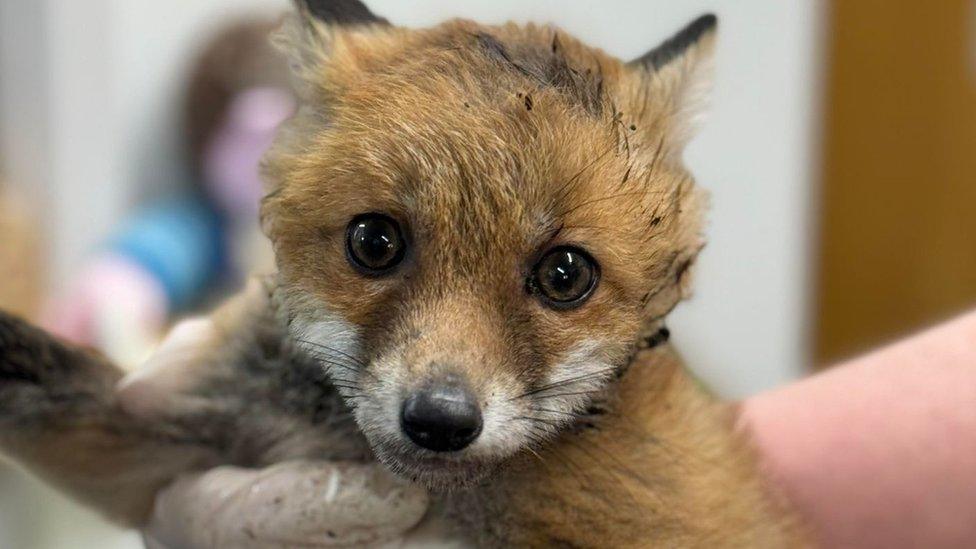
- Published14 April 2024
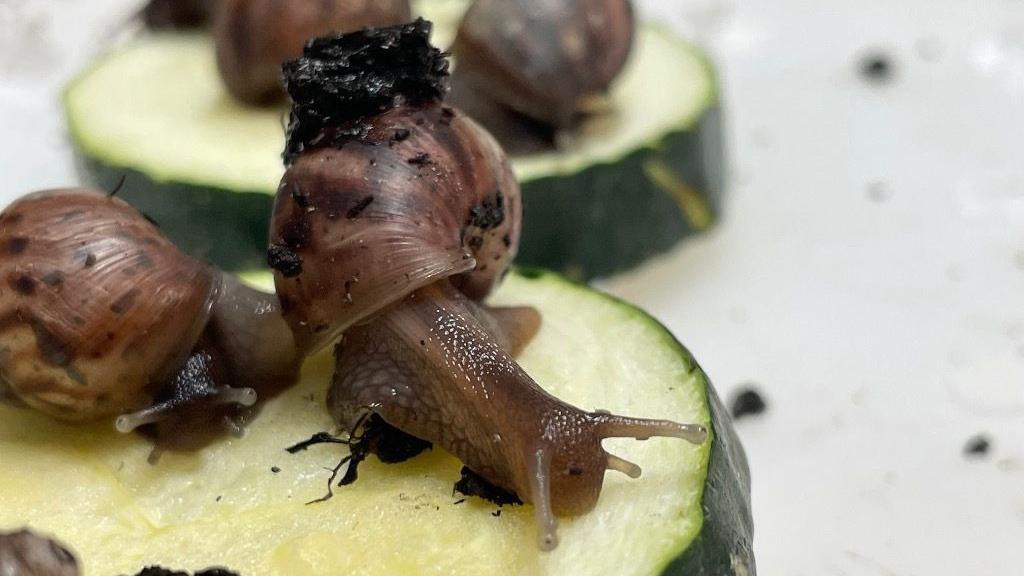
- Published17 March 2024
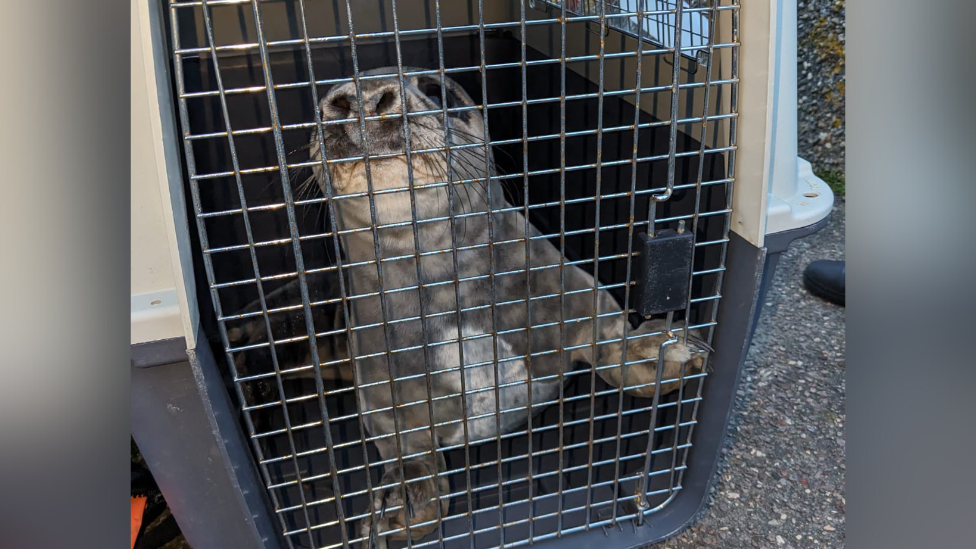
- Published1 March 2024
